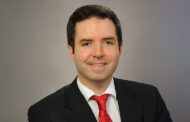November 10-12, world leaders in the study of immune-oncology (IO) will gather in Brussels, Belgium, for the IASLC’s first conference dedicated to the science of IO resistance in non-small cell lung cancer.
The meeting, Hot Topic in Basic & Translational Science: Resistance to IO in NSCLC (HTIO), will include presentations and discussion of new and emerging data and is designed for researchers, clinicians, and students looking to expand their knowledge of the benefits of immunotherapy to a broader population of NSCLC patients.
HTIO 2023 is not a live-streamed event, however virtual registration is still available and grants access to recordings of scientific sessions approximately 48 hours after the in-person sessions, along with copies of presentation slides and posters.
The meeting, chaired by Joachim Aerts, MD, Erasmus MC Cancer Centre, Rotterdam, Netherlands; Kellie Smith, PhD, Sidney Kimmel Comprehensive Cancer Center at Johns Hopkins Medicine, Baltimore; and Roberto Ferrara, MD, of the National Cancer Institute, Milan, will explore science on a range of potential mechanisms of resistance. ILCN recently spoke with Drs. Aerts and Ferrara to learn more about what attendees can expect at the first ever IASLC conference focused solely on immunoresistance in NSCLC.
ILCN: The “hot topic” for 2023 is resistance to IO in NSCLC. Why is this an important topic? How will a better understanding of resistance help the thoracic oncology field to move closer to a cure for thoracic malignancies?
Dr. Aerts: Resistance to IO is an important topic, because at the moment, we do not have an approved treatment for our patients who have progressed. Also, we have no proper insights about why some patients have a primary resistance—or, in other words, progress directly—and others respond but ultimately develop tumor escape, and still other patients have durable responses. This knowledge is essential to developing novel treatments that will lead to cure for our patients. However, we need our basic and translational researchers to collaborate and interact to help move the field forward. That is why the IASLC organizing this meeting is so important.
Dr. Ferrara: Since the advent of immune checkpoint inhibitors in oncology, we have reached a plateau in the survival benefit for our patients. A deep understanding of the mechanisms of resistance to immunotherapy is crucial to further increase life expectancy of our patients and to identify novel immunological vulnerabilities, which can be druggable with new agents.
ILCN: As you planned the educational programming for Hot Topic 2023, were there any surprises among the latest science regarding immunotherapy resistance in NSCLC? Did any abstracts in particular stand out among the submissions you received?
Dr. Aerts: We tried to develop a program where leading experts from around the globe present their most novel data. And with the way the symposia are set up, there will be enough time and space for attendee interaction. Hopefully this will lead to new collaborations and friendships among researchers, clinicians, and students. Collaborations are essential for progress in the field
Dr. Ferrara: All the abstracts, especially the ones selected for oral presentation, provide some original results about translational studies in the immunotherapy field. In particular, abstracts exploring biomarkers of acquired resistance to immune checkpoint inhibitors—both genomic and those related to host factors—are highly innovative.
ILCN: HTIO focuses on resistance to IO in NSCLC, which may feel like a narrow subject area compared to the breadth of research across the vast field of thoracic oncology. However, resistance to IO in NSCLC is quite complex with many divergent avenues of ongoing research. For those looking to get up to date on the subject, where should they start? Are there particular “can’t miss” sessions you’d recommend?
Dr. Aerts: I think the subject is not that narrow anymore. There are so many developments taking place that provide novel insights. However, interaction among the researchers of all these different findings needs to take place. The symposium is set up in such a way that all attendees can be present at the key lectures and in between, interact with colleagues during poster sessions to hopefully develop new research to bridge knowledge gaps.
Dr. Ferrara: For basic scientists interested in the immunology field, I would surely recommend the session on the tumor microenvironment and host factors associated to resistance. For physician scientists and medical oncologists interested in translational research, the session “Resistance to immune Checkpoint Blockade in the Clinic: Where are we now?” is a must-attend session, in my opinion.
ILCN: Is there anything else you want attendees—in Brussels or virtually—to know?
Dr. Aerts: The time we are in, with all the developments in immune oncology is amazing, and we really need all interested scientists to join forces to get the field moving towards effective treatments for our patients. At the podium at IASLC’s Hot Topic IO is where this interaction starts
Dr. Ferrara: Attendees should not miss the two keynote lectures from giants in cancer immunology. We have Drew Pardoll, MD, PhD, who is Director of the Bloomberg-Kimmel Institute for Cancer Immunotherapy at Johns Hopkins Medicine, who will present “Teaching the Immune System to Fight Cancer: Once the Road Less Traveled, Now a Superhighway.” We will also hear from Prof. Laurence Zitvogel, MD, PhD, who leads tumor immunology and immunotherapy research at Gustave Roussy, Paris. She will discuss “Gut Dysbiosis and Microbiota-Centered Interventions with Cancer Immunotherapy.”





